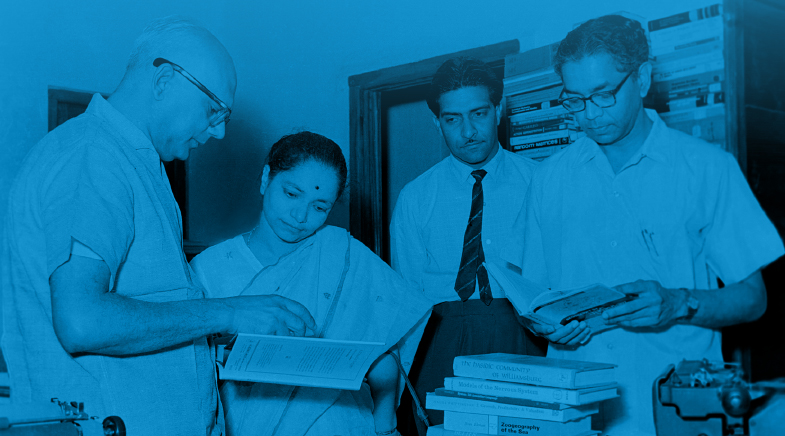'Astronomy is one of the last frontiers for physics'
-
- from Shaastra :: vol 01 issue 06 :: Nov - Dec 2022
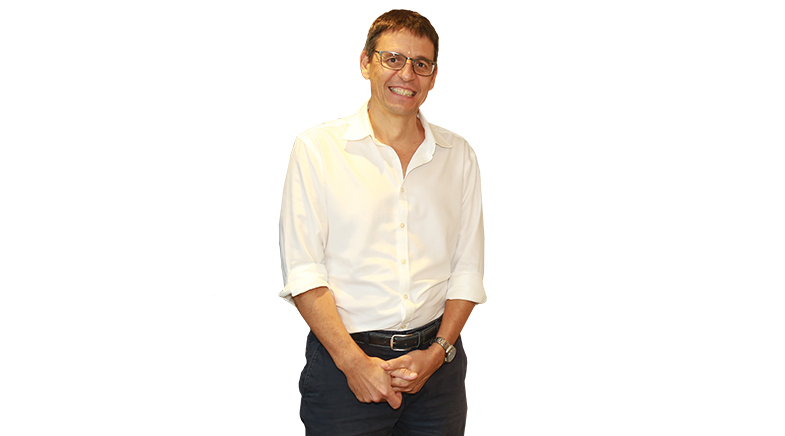
Nobel Prize-winning astronomer Didier Queloz on the cosmic significance of his exoplanet discovery.
Few scientists get to change the course of a research field during their student days. Professor Didier P. Queloz founded an entire new field while he was a PhD student. In 1995, while researching for his doctorate at the University of Geneva, Queloz built a piece of equipment that could measure the speed with which a star is moving towards or away from the Earth, a wobble that is called the star's radial velocity. This wobble is usually caused by a companion planet, and so radial velocity measurement is a way of detecting planets around stars that are far away. Queloz developed an instrument that could measure radial velocities of stars with precision. He won the Nobel Prize in Physics for 2019 along with his PhD supervisor Michel Mayor for their discovery of the first exoplanet, in the Pegasus constellation, orbiting the Sun-like star 51 Pegasi.
Queloz is the Jacksonian Professor of Natural Philosophy at Cambridge University, and part-time professor at ETH Zurich. Excerpts from an interview to Shaastra during his recent visit to IIT Madras.
How was the field of extrasolar planets when you started your research?
Our aim was to build a machine that could measure radial velocity of a star with precision enough to detect a planet. That was essentially my PhD work. There were a lot of new ideas in the way we built the machine. After three or four years of hard work, we had a machine that could measure the radial velocity at a precision of 10 metres/second. Why 10? Because 10m/second is the amplitude of the change of velocity produced by the orbit of Jupiter on the Sun. Everybody, including us, thought that all the planets should be like the solar system. So we embarked on a systematic search of 142 stars, a search that should have taken years to find a planet like Jupiter, which is far away from the Sun.
It was the end of the PhD for me, and my supervisor decided that it was a good time to take a sabbatical because nothing was supposed to happen for years. My role was to make the machine, make it work, and start the programme. When I had the first data on that star, it was a way to test the performance of the machinery. The recorded measurements were a bit erratic. The value of the speed was changing between measurements recorded days apart. When I saw that, I panicked. I felt that something was wrong somewhere, because to my mind it was impossible. So I battled quite a lot with the data. It took me a couple of months. I was shocked and worried about the repercussions if I talked to my supervisor. I kept quiet and kept working on it till I felt that it was real, and there was something going on in that star.
In the end, I came up with the assumption that there must be a planet around that star. I communicated this to my supervisor Michel (Mayor), who was in Hawaii. I sent him a fax. Michel said: 'Maybe, we will see, I will be back in a month.' Later he said he didn't believe it. It was a Jupiter-like planet... He came back and I showed him the data, all the tests I had done. Then he said, it must be true. There was no other explanation.
We waited till July to reobserve the star with my model. When we have a model, we can predict where the planet will be. We made observations every night based on my predictions, to see if it was real. This moment actually quick-started the process to publish the results. The way we treated it in the paper was simple. Here is the data, and here is a long list trying to explain what it is not. At the end, we said that we were very sorry to report that the only explanation we could come up with was that it was a planet! We were challenged by almost everyone because the planetary formation theory at this time didn't predict anything like that. So it was difficult to get the paper published. It took us a long time to convince the fraternity that it was real. Then some other team confirmed the data. It took four years for the community to accept it. Then it became absolutely obvious.
It was not a big deal for my professor because he was near the end of his career. For me, however, it was difficult because it was the start of my career. But I kept discovering new planets, kept building new machines. When you make such an important discovery, it gives you a boost, and you realise that you are designed for that. At that time, I realised that I was a born scientist. That was the only thing I could do for a living.
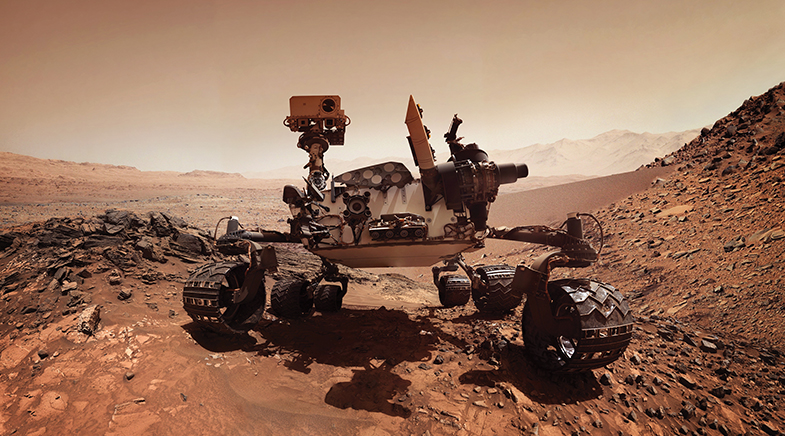
How did you come to work in a field that was not fashionable at that time?
I was always gifted in mathematics and rational thinking. I also loved experimenting. I was curious and I have kept up a childhood interest in novelty. At some point, I said that I was going to do physics because it was asking big questions. Physics had just enough mathematics but not too much. I decided to take the toughest physics available, which were high energy physics and astrophysics. When I was a student, I did a small research project. One was a detector, and the other was an experimental telescope. I enjoyed developing both. My thinking was on these lines: in experimental high energy physics I will spend my whole life in a cave, but in astrophysics I would go to fancy places like Hawaii. I thought I should go to astrophysics. I liked nature, walking in the forest. This was how I came to astrophysics.
Michel was then looking for a PhD student. He had a crazy project to measure the radial velocity of stars. I thought this was crazy, it was cool, and so I would do it. It was a good project, and he was a very nice supervisor. I keep telling students to find a good supervisor for their PhD research. You have to feel at ease with the supervisor since you are going to spend four to five years with that person. If you push the boundaries, you will change the way you see your work. So better do that with a nice person.
"We don't really know the chemistry you need to produce life. When we have learned that, it will be far more easy (to detect life outside the solar system)."
How has the field of planet detection changed in the past 25 years?
Dramatically. It is a very old problem, but many people failed for a long time. The field was interesting, but they were not really aware of how to do it. So we were left on our own. Because people were sceptical, it went slowly in the beginning. And then, as soon as everybody started to get convinced, the idea of searching for planets was appealing to the new generation; some of them moved fields. It was unusual. When they are established, very few people move from their traditional research areas. In the beginning, my field may have had 50 people. Now we have 5,000 people. We have satellites, we have big equipment. It has become one of the priorities of NASA (National Aeronautics and Space Administration), the ESA (European Space Agency), the ESO (European Southern Observatory) and all those big organisations. The reason is that the field has moved from a situation where we were asking whether there are planets to a situation where we know that there are plenty of planets, and there is so much that we don't understand about why they are so different.
And that is an interesting question because you question the origin of the solar system, the specificity of the solar system, the specificity on Earth and the problem of life in the universe. And then it gets really big because when you say life, you go much beyond us. You start going into geophysics, biology, chemistry. And then it's not 5,000 people but one million people.
So the field is really booming. Astrophysics is a booming field in general because our lab is the universe. And we can test extreme situations… extreme physics that we cannot do (and) will never be able to do on Earth. When you have two colliding black holes, good luck to do that as an experimental set-up in a lab on Earth! You can't. But that's the only way to test the small scale of the gravitational field, for example, the theory. You can test it, you can even test what it means to be inside the black hole, in terms of the physics… A lot of physicists have now realised this. So astronomy is certainly one of the last frontiers for physics, along with quantum physics. High energy physics used to dominate the field from the 1920s to the end of the century, but now they are hitting something like a hardcore limit. To continue the experiments, you need to increase the size of the accelerators so much that they become impractical to build. So you start thinking about using the universe as your accelerator to test some of the laws of physics.
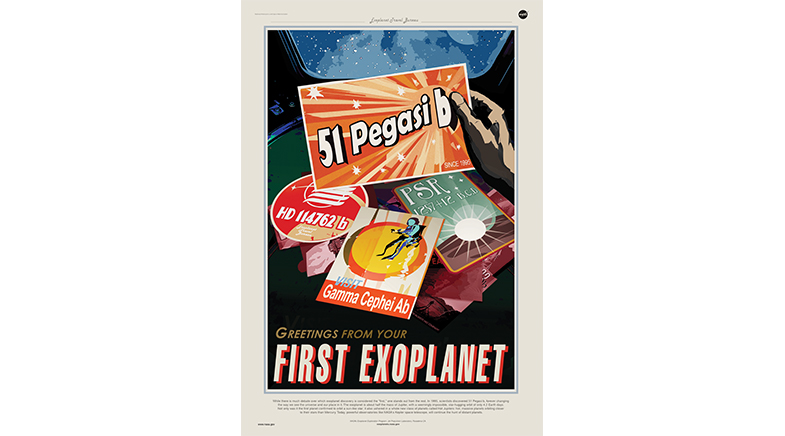
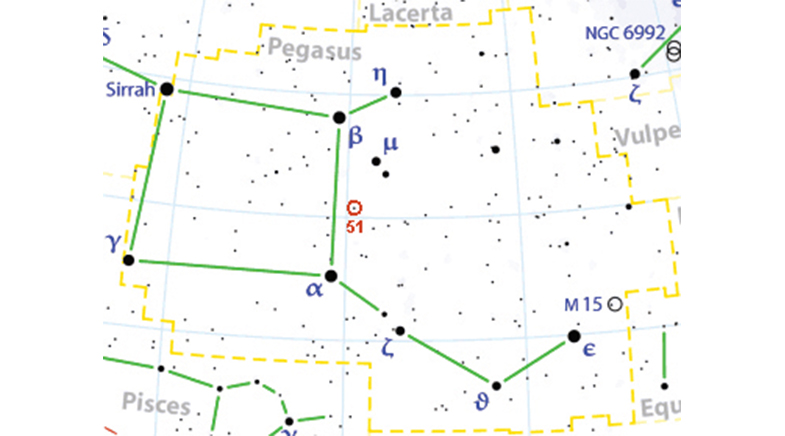
Amidst all the big questions in astronomy, where does your field fit in? What influence does it have on other fields?
All the fields are talking to each other because techniques developed by some people in one research field can be used by others in another field. That is one of the reasons why I moved to Cambridge. Now, in terms of the questions we ask, we do not have an infinite number. One of the big questions is the origin of the universe and what the universe is made of. The other one is life. How do you start life? This is where we're sitting now. We understand that life appears on planets, and planets are the by-product of stars. A lot of chemistry, fascinating chemistry, is happening on the surface of the planet. And one of them may be related to life.
"Earlier, we were asking whether there are (new) planets; we now know there are plenty of planets… and we don't understand why they are so different."
How hard is it to detect life outside the solar system?
Imagine for a moment that you want to play the lottery. If you don't know what the winning ticket is, it is very difficult to win. If you know how to pick the ticket, if you know the winning ticket will be among these ten tickets, it is easy. We don't really know the conditions, the chemistry you need to produce life. But we are trying to look for life on Mars. We're trying to look at signs of significant changes of the atmosphere of planets. All these will give us a kind of a story. They will all point to some specific physico-chemical mechanisms that could be understood as the minimum condition for life, whatever they are. We know that at least it must have water, but it's not enough, and we are learning that. When we have learned all that, it will be far more easy to answer your question.
If we do ‘win the lottery', will it be because of better equipment or because we know exactly where to search?
I think we will win because of the creativity of the human brain. It is about asking the right questions and designing the right equipment, how we are going to pick the key chemistry or the key ingredient that will tell us the story. So it's really the creativity of the mind-brain that will win, as in any field of science.
Nobel Prize winners down the ages have said it's a distraction, that all the activities associated with it keep you from doing your work. Is that your experience, too?
It clearly takes up your time. The question is: what is your role in the current universe? What is your role in society? As a physicist, I think my role is to first help understand the universe we live in. But it is also to help communicate how science works and progresses. So I took the active decision to slow down the research because I think it is more important to communicate science right now than to do my own selfish programme.
It's a great privilege to get the Nobel Prize. But it's also a connection to something bigger than yourself. And it comes back to the origin of the prize. Alfred Nobel had a vision, which was unbelievable at the end of the 19th century: to establish a prize to value the work of science in a kind of universal way. That does not depend on your country of origin, the language you speak, and the colour of your skin. So when you get the Nobel Prize, you inherit a piece of that vision. Personally, I could not continue working selfishly. I would have felt guilty. For me, it's not a distraction. It's a chance to do that. And it's a privilege.
Have a
story idea?
Tell us.
Do you have a recent research paper or an idea for a science/technology-themed article that you'd like to tell us about?
GET IN TOUCH










